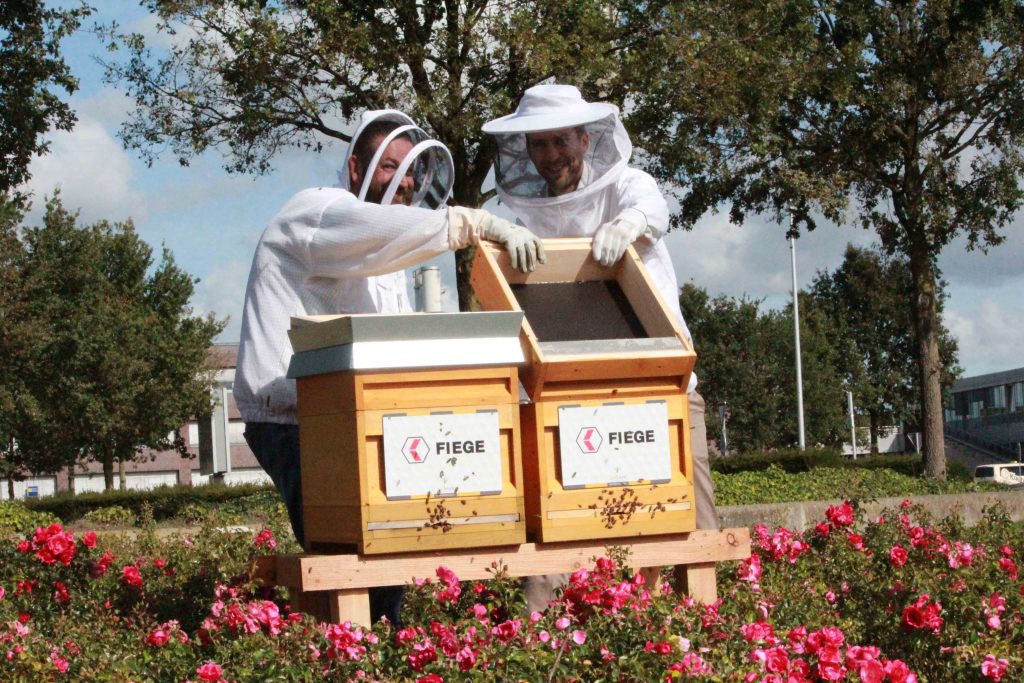Beehives will be set up at four Fiege locations
Greven, 4 October 2019. The decline in the number of bees and the resulting dramatic drop of the bee population is a global issue. Yet bees are crucial for our ecosystem. Bees and other flower pollinators contribute significantly to maintaining the planet’s biodiversity, as they ensure that thousands of different plants thrive, which in turn feeds countless animal species. Fiege recently installed five bee colonies at four of its locations. They will be sustainably cared for under a co-operation with beefuture. Fiege’s investment for this venture totals more than € 10,000.00 annually.
The bees were taken to the sites in Mönchengladbach, Ibbenbüren, Erfurt and Greven over the past days. beefuture from Ulm in Germany set up beehives at the branches and brought in bees from Bavaria. beefuture’s trained beekeepers will regularly check on the bees, clean up the hives, and harvest the honey.
“The bees will search for food within a five kilometres radius and continue to cultivate their colony”, explained Frederik Idem of beefuture while setting up the colony in Greven, which Jan Fiege, Managing Director Real Estate also attended. “As an enterprise, we feel committed to protecting the environment”, Jan Fiege added about the reasons why the bees were given a new home at Fiege. “This is an excellent opportunity to do something for mother nature while attracting attention to the plight of bees amongst our employees or other guests coming to our locations, who will see the beehives here.”
The bees have been humming in and around their hives after the beekeeper let the colony fly freely in its new environment. “First the bees will start flying around to explore their new home, looking for food”, is how Frederik Idem describes what bees will be doing initially after moving. “A beefuture keeper will come to check on the bees around 15 times a year – less so during the winter season, and then more often in summer”, Frederik Item added. This includes the honey harvest even if this is not the primary focus. “This is not particularly profitable but the bees will produce between 10 and 15 kilogrammes of honey per colony, which will even be labelled as a regional product.”
Hence in the future, a further Fiege exclusive will include homegrown honey. “Whether we then auction it off for a good cause or give it away has not yet been decided. To begin with we are happy to see the bees settle in their new home and will potentially be adding further colonies”, says Jan Fiege.
